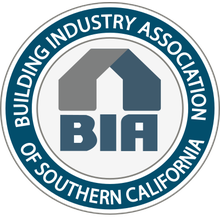Activity
-
BIASC-Staff posted an articleBILD Helps Win Case Supporting Funding of Storm Water Programs see more
After several years of administrative and courtroom battling, the California Supreme Court handed down a decision on August 29, 2016, that promises to relieve pressure on the building industry to fund costly storm water quality programs throughout the state.
The case was Department of Finance v. Commission on State Mandates, and involved a challenge brought by the County of Los Angeles seeking to have the state fund portions of their implementation program for the municipal separate storm sewer system (MS4) permit. Public storm drain permits often cost millions or billions of dollars for local governments to implement and the specific requirements challenged by the County of Los Angeles included requiring trash receptacles at transit stops and inspections of various facilities, including construction sites.
Per the California Constitution (Article XIII B, §6.a) the state is required to reimburse local governments that state law or regulations require them to implement programs that go beyond federal law. Many local governments have argued that numerous aspects of their municipal storm sewer permits—issued by the State Water Resources Control Board or Regional Water Quality Control Boards—go beyond the requirements of the federal Clean Water Act and are thus state mandates eligible for reimbursement. The County of Los Angeles along with most of the cities therein filed a claim with the Commission on State Mandates demanding such reimbursement and the case was the first one of its kind filed in the state. Other local governments, including the Counties of San Diego and Orange, also have matters pending before the courts or the Commission that will be impacted by this decision.
BILD Foundation was involved in each stage of the litigation, filing friend of the court briefs supporting the argument that the terms of the storm drain permits extend beyond federal requirements, are imposed at the discretion of the state, and are, thus, subject to reimbursement by the state. The goal of the BILD briefs was to support the local governments, ensure access to funding of the local programs, and thereby relieve some pressure felt by the building and construction community to contribute to the funding of these costly programs.
Click here to read the rest of the article on BILD's website.

